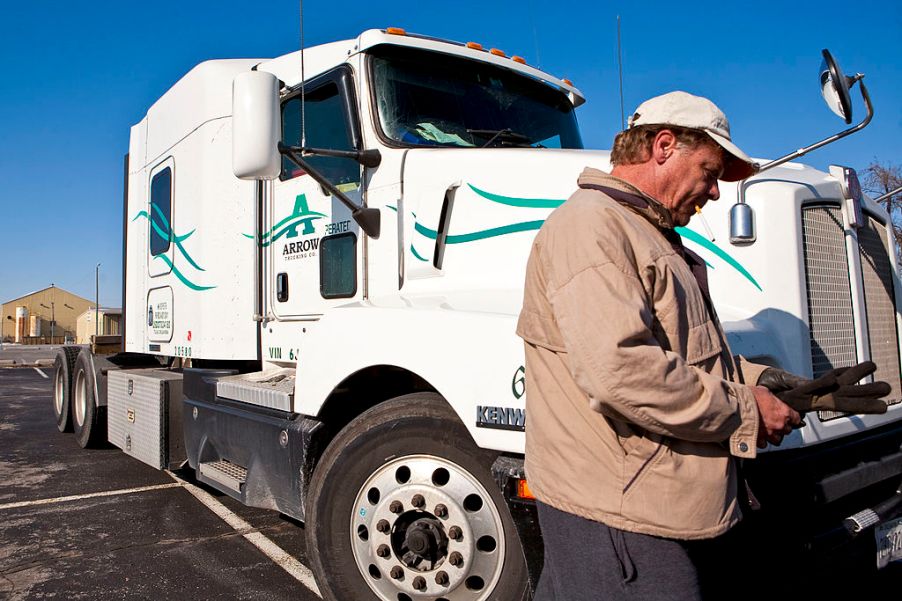
Is the Future of Trucking Electric?
This year at the Advanced Clean Transport Expo, four of the biggest names in truck manufacturing all pitched something that would have seemed ludicrous only a few years ago: electric trucks.
Not just consumer trucks, but real haulers including day-cab Class 8 tractors, trash trucks, and 6/7 urban delivery trucks. These are real haulers all pitched to be road-ready and about to transform the trucking industry as we know it.
Is it practical? Is it realistic? One thing we do know is that the trend isn’t going away. Daimler, Volvo, Peterbilt, and Kenworth all had electric truck designs ready to present, and we’re seeing an increasing number of electric truck designs hitting the industry. So is the future of trucking really going electric?
The motivations behind the electric truck initiative
First things first, let’s answer the question of why the sudden intense push for electric trucking by the big manufacturing brands, and why electric trucks are no longer the territory of small-time custom refitters.
What it really comes down to is regulations and competition. That, and the fact that clean diesel isn’t as cost-effective as it used to be. Electric trucks picture to be more efficient and would be better for the environment. The new trucks would also help to compete with other industries that adopting modern technology.
Staying ahead of regulations and the competition
According to Overdrive Online, California will have fully banned diesel through regulations by 2030. We can only assume that other states will follow in their footsteps.
This leaves the trucking industry with little choice but to seek other options. Natural gas trucks are on the rise, but these have yet to prove themselves as the best alternative. Trucking manufacturers and fleets have a lot to gain by looking into electric trucks and seeing where the technology takes them. There isn’t much time to completely refit fleets if diesel is legally on its way out the door.
The big names in trucking are also getting into the game because otherwise, niche electric manufacturers might get there before them. According to Trucks.com, if electric trucks do turn out to be the future of trucking, then Peterbilt and Volvo Trucks among others certainly don’t want newcomers like Tesla and Xos to get the lion’s share of the market.
Mainline manufacturers need to get products into the market before regulations and competition catch up with them.
Diesel isn’t all it’s cracked up to be
It’s also worth noting that diesel is not satisfying the trucking industry of late. Diesel systems are complex and have grown even more finicky with the addition of retrofitted emissions control systems.
Diesel systems need to be cleaned and maintained regularly, sometimes unexpectedly. In a survey by CK Commercial Vehicle Research that covered 35,000 medium- and heavy-duty trucks and 85,000 trailers, 50% of operators said emissions and after-treatment systems were the primary problems with equipment uptime.
As an example, cleaning the diesel particulate filter system costs $300 upfront. But it also can take up to three days of maintenance time where the truck is stationary. That’s three days of a truck’s daily revenue and the maintenance cost gone. Needless to say, the trucking industry is ready for something new, as diesel becomes less and less desirable as a current system.
Electric trucks offer maintenance and fuel savings
Conversely, data collected from electric passenger vehicles have shown promising results. Electric trucks with a simple charging system and unified electrical system with the cab’s computers promise to be far easier to maintain compared to the complex systems currently seen in modern diesel trucks.
Passenger electric vehicles are also seeing significant savings in fuel per mile. Recharging a vehicle costs at least 20% less than fueling up with gasoline or diesel. Plus, it can be done in a reasonable amount of time while drivers take necessary breaks.
Even with variations in fuel and electricity costs, the estimate remains at 20% savings or higher, which is undeniably tempting for an industry that revolves around fuel costs.
Lingering concerns
Of course, you probably have a few trailing questions about the future of electric trucking. The two biggest questions concern range and recharging. The infrastructure is already sufficient to switch many urban trucking fleets to electric, as battery range is sufficient for local deliveries and urban trucks can recharge at its facility depot.
However, long-range trucks may still have some concerns because there is not yet interstate recharging infrastructure and because electric batteries cannot yet compete with diesel in terms of range per run.
But times are changing. While not road-tested yet, Yahoo! Finance reports that a research team working for Tesla recently lab-tested a lithium-ion battery that can last two-to-three times longer than current Tesla batteries.
This is good news for trucking if it is put into practice, but bad news for Peterbilt and Daimler considering whose lab produced it. The enigmatic leader of Tesla, Elon Musk, is confident that this is the path to his promised “million-mile battery” and robo-taxis by the end of the year. However, we’ve learned to take these statements of confidence with a grain of salt.
Is the future of trucking electric?
We’re not sure if trucking will be transferring to an all-electric industry any time soon, but they are definitely looking seriously into diesel alternatives, and electric trucks have a lot of promise. With longer distance batteries and interstate charging infrastructure, it’s starting to look possible. Only time will tell.
]


